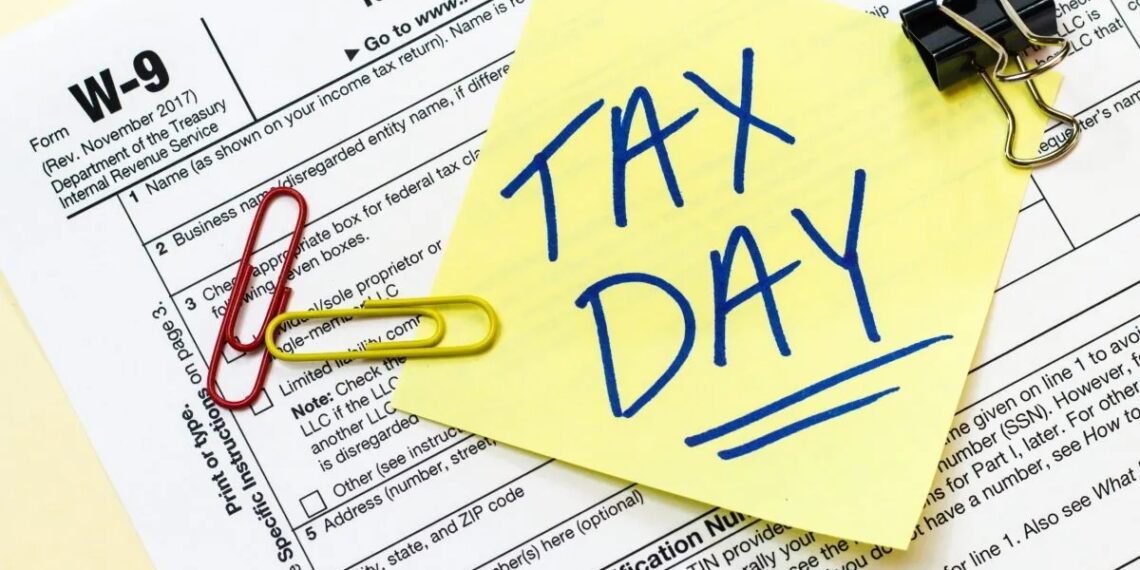By John F. Di Leo, Opinion Contributor
April 15 is usually Tax Day in the United States – the day by which your individual federal tax return has to have been filed, if you’re to avoid a late penalty.
And if you’re in one of the many states with its own statewide income tax – 43 at last count – that usually shares the same deadline.
By what right does the government take this money from us?
That’s an easy one. The Constitution says it can. To be specific, the 16th Amendment authorized the federal government to collect income taxes, so it’s been legal for 110 years.
So it’s the Constitution that makes this tax legal. The politicians who support it will waste no time citing the Constitution of the United States, when it gives them permission to do something they want to do.
But this opens them up to a different problem, doesn’t it?
What do they spend all that money on? What justifies THAT?
Ask that question, and the politicians get awfully quiet. The problem is, that same Constitution which so clearly allows them to collect taxes the way they want, to pay for the necessary functions of the government, does not so clearly allow them to spend it the way they want.
The Constitution is clear in its authorizations, and some of them are quite sweeping indeed: The government can use tax revenues to fund the armed forces, to build highways, to run a post office, and foreign embassies. They can operate a federal judiciary, borrow money and pay it back with interest, secure our borders, and conduct trade agreements with foreign nations. They can punish piracy and other felonies, punish counterfeiters, and operate a bureau of weights and measures.
In fact, no matter how broadly you read the Constitution, the authorized tasks of the federal government are, at most, only about a third of our federal outlays. Even with the incredible cost of a modern military, and the unbelievable principal and interest our national debt has grown to, these authorized expenditures still make up only about a third of our annual federal budget.
And this leaves us with this question: Why aren’t our federal taxes a third as high as they are?
The federal government has lots of other ways to make money, by the way. Our income taxes aren’t the only source of revenue. They collect import duties and fees, antidumping and countervailing duties, and punitive tariffs like the Section 301 and Section 232 tariffs too. They collect Social Security and Medicare taxes (“off budget,” whatever that means), and capital gains taxes and mineral rights lease fees and permits. And business taxes too, oh, so many of those.
But still they “need” our personal income taxes. At these painful levels. What for, really?
Well, in addition to the projects that the federal government legally funds under the Constitution, they also grant countless billions of dollars in grants to schools and colleges and research foundations both here and abroad, ranging from the state college down the road to the Wuhan Institute of Virology in China. The Constitution doesn’t say they can do it; they do it anyway.
The federal government issues stimulus checks whenever the party in power thinks it needs to buy some votes, so that’s $300 or $600 or $1200 or more, designed to cover huge demographics of both working and nonworking adults of voting age. The Constitution makes no mention of authorizing bread and circuses for the general population, but they do it anyway.
The federal government picks industries to destroy, and that’s not cheap. In the 1970s, they started turning the public against petroleum, coal and even natural gas, so they have been funding such incredibly inefficient alternatives as solar and wind for decades. They issue countless billions of dollars in subsidies for the panels and windmills, their importation and installation, even their manufacture abroad – all with your tax dollars. This makes our electric grid inefficient, enriches China, and harms our own American businesses that develop traditional energy sources that work. The Constitution doesn’t authorize any of this, but they do it anyway.
The federal government decided to pay Americans to intentionally destroy their own working automobiles – overwhelmingly American cars and trucks – 15 years ago, in a program called Cash for Clunkers. These weren’t really clunkers, of course, but they were American cars, and the Obama-Biden administration wanted Americans to buy Asian economy cars, so they paid us – with our own money – to destroy our Chevrolets and Dodges and Fords and GMCs, and to spend the money on Hondas and Toyotas and Nissans and Hyundais. This was a drop in the bucket compared to the other issues on this list, only about $3 billion in taxpayer funds. But it is a fascinating example of the government paying Americans, with borrowed money, to destroy American cars and reward them for buying, often, the first foreign car of their lives. The Constitution didn’t allow them to do this, but they did it anyway.
On an infinitely larger scale, however, the federal government decided to kill the American auto industry outright, so it expanded the concept of CAFÉ standards and boosted their demands to an impossible level, using the fictional science of “climate change” to blame a harmless gas – carbon dioxide – and force the auto companies to make battery-operated “electric vehicles” instead of cars and trucks that work. Between the regulatory apparatus forcing this change, the subsidies funding EV purchases, and the cost of federally funded charging stations to support it all, we’re already well north of three or four hundred billion dollars, and that’s only for a couple percent of the nation’s auto fleet (new EVs made up 8.5% of auto purchases last year, truly a drop in the bucket). How many trillions of dollars would it take to complete the job? An impossible question, since our electric grid can’t even handle the number of EVs we have today. This federal assault on the American auto industry is killing the car companies. The federal government has no legal right to do any of this, of course; they did it anyway.
In the 1960s, President Lyndon Baines Johnson – “LBJ” to his friends, of whom he had none – championed a welfare program called The Great Society, designed to trap America’s poor, especially our racial minorities, in a permanent state of dependence on government checks. This unprecedented expansion of the welfare state has impoverished countless tens of millions of people, destroyed neighborhoods, families, human lives, and only grows in its destruction. This welfare state costs us, in sheer dollars alone, hundreds of billions of dollars per year, but it costs infinitely more in its human costs. The Constitution gives the federal government no authority to spend our tax dollars on such an evil project; the federal government does so anyway.
Most significant in the minds of most Americans today, as we watch the news on our TV or computer screens, or hear the reports on our radios, is the intentional abandonment of our borders by the current regime. The Biden-Harris team has directed federal forces to allow the nation to be overrun by hundreds of thousands of illegal aliens per month. These countless torrents have overwhelmed our border states and our big cities, bringing with them massive crime and disease, breaking the social safety nets of both public welfare programs and private charities. Our healthcare sector, our schools, our courts are all breaking under the strain. Both states and federal agencies are illegally funding hotel stays, paying medical invoices and restaurant bills, even chartering buses and airplanes as they shuttle these illegal aliens around the country. The Constitution allows no such actions; they do it anyway.
The above examples are just a drop in the bucket, a mere sampling with hundreds more such examples behind them, as we scour the federal budget and see what our tax dollars are spent on.
Did you vote for any of this?
A Constitution is, after all, a pact between the states and the people, agreeing to authorize a federal government to represent us, and to do just those few things that we – the individuals and the states – cannot do for ourselves.
Nothing we’ve listed here, and none of the remaining hundreds of government projects, departments, and bureaucracies unmentioned, has been legally authorized by the states and the people, for the federal government to take on at all.
The Founding Fathers had a plan to protect us from such mission creep in our federal government, of course. The Framers set up each branch to be a watchdog over the other, and they specifically listed the only functions that the federal government was allowed to manage. And the government stayed within those bounds, for the most part.
Until 1913.
With the passage of the 17th amendment, the Framers’ design was stood upside down. By changing the US Senate from the state legislators’ seat at the table into just another House of Representatives with longer terms, the Constitution was robbed of its most important tethers. The federal government was empowered to grow as it pleased, without state houses to rein it in. And over the past century, the size of our federal government has exploded.
If we ever hope to lower our tax rates, we must rein in the spending, and that also necessitates reining in the scope of our government. We never voted for any of this. We were never even asked to, because even the most leftist politicians know that the American people would not vote for such outrageous programs, much less to authorize the constitutional amendments that such authority would require.
On this tax day, 2024, we must focus on the nation’s need to reduce the size of our federal government – to return to Constitutional levels – and to build in a protection against such devastating program explosions ever returning again. And that likely means that we need to repeal the 17th Amendment. If this is to be a federation of states rather than dictatorship from Washington D.C., we must re-empower the states by again making the United States Senate a power brake wielded by the state capitols. It’s likely our only chance.
Copyright 2024 John F. Di Leo
By John F. Di Leo, Opinion ContributorIn the slowest and most tentative of releases, we learned this month that Russia is talking about making some very generous offers...
Read moreDetails








